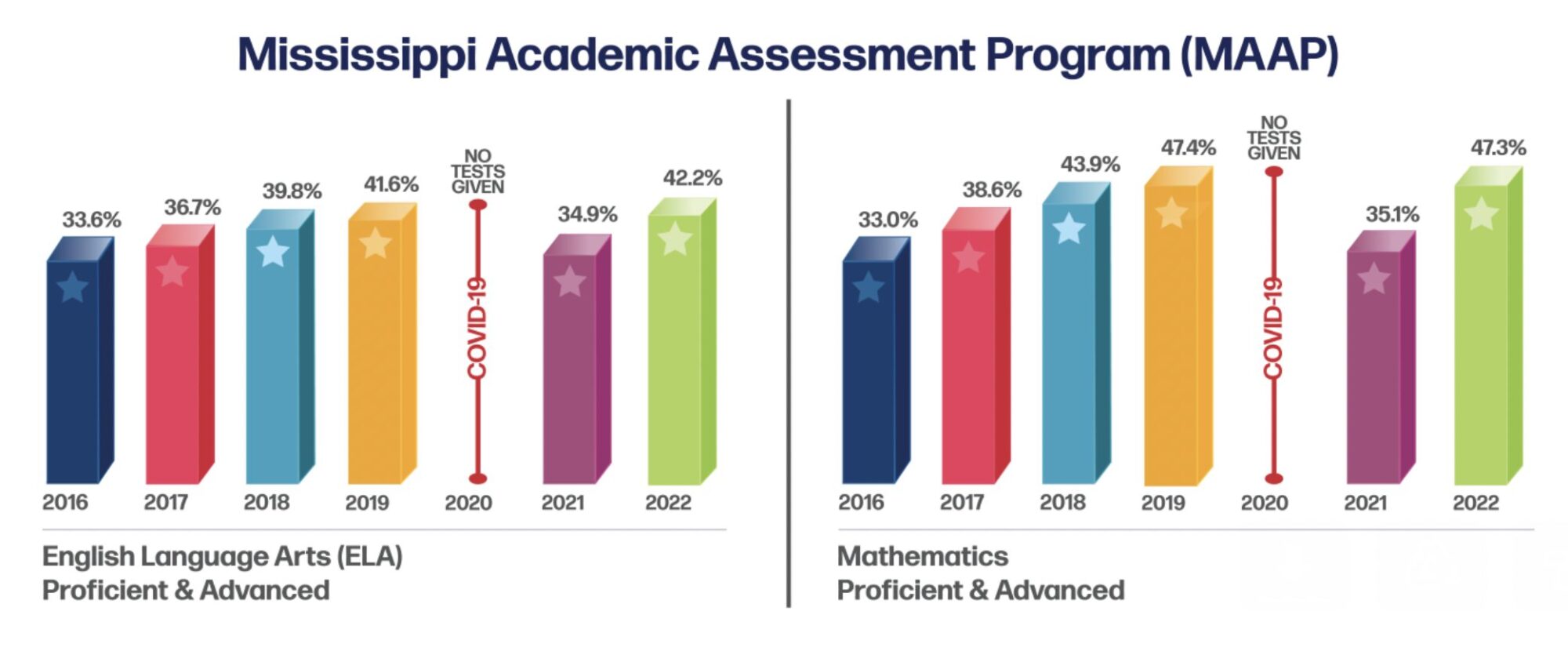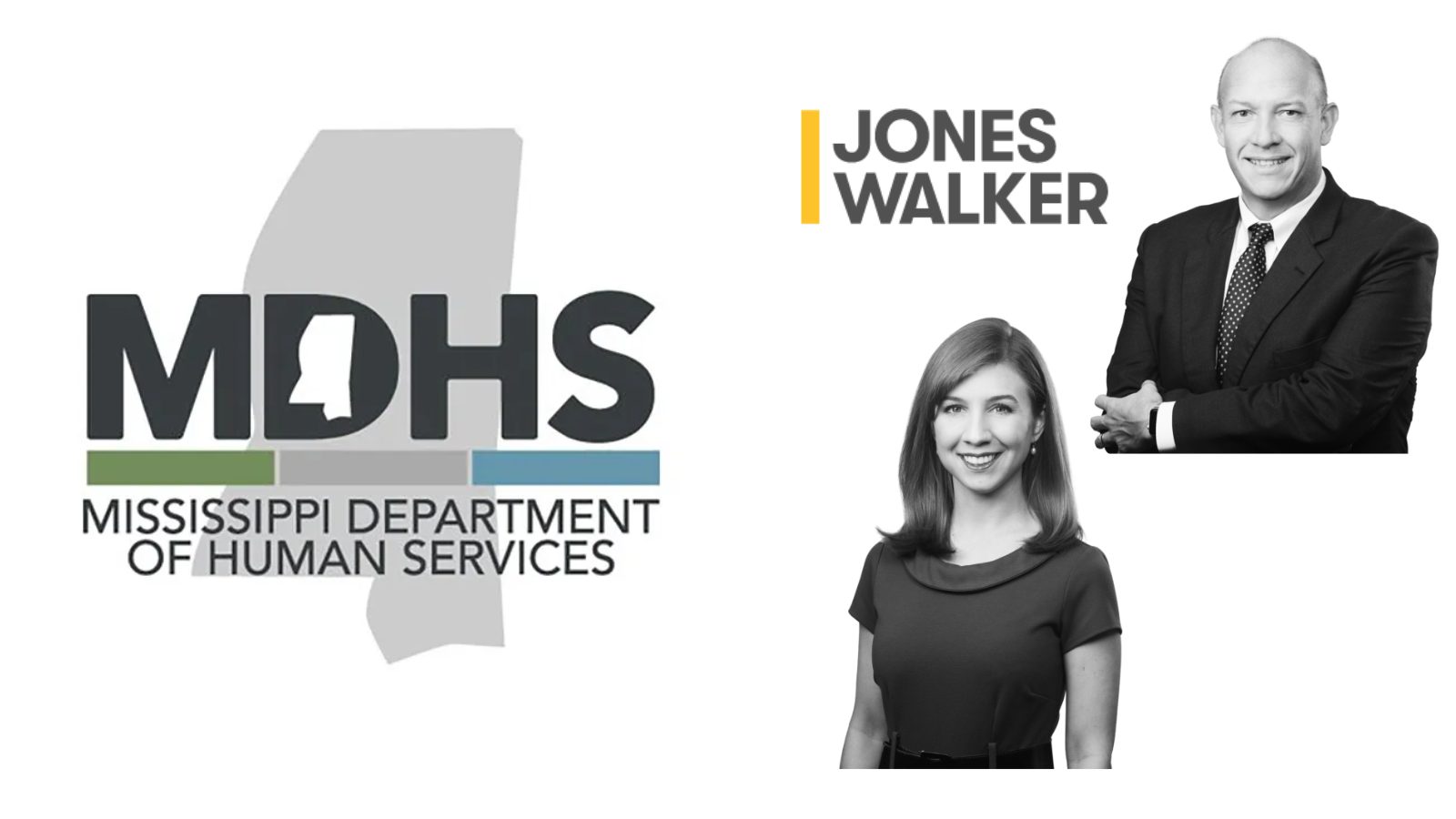
MAAP measures students’ progress toward academic goals that equip them with skills, knowledge to succeed in college, workforce.
On Thursday, the Mississippi Department of Education (MDE) released statewide results from the 2021-22 Mississippi Academic Assessment Program (MAAP). MAAP measures students’ progress toward academic goals that equip them with the skills and knowledge they need to succeed in college and the workforce.
The results show student achievement exceeding pre-pandemic levels in English Language Arts (ELA) and science, and nearly tying in mathematics.

Dr. Kim Benton, interim state superintendent of education, said that the 2021-22 assessment results provide clear and indisputable evidence of the resilience of our students and educators and their ability to recover from the disruptions to learning.
“We are confident Mississippi educators and school leaders across the state will continue to build upon this progress by setting high expectations and working to ensure every student in every school overcomes the setbacks of the pandemic and is successful,” Benton continued.
MAAP measures student performance in ELA and mathematics in grades 3-8, science in grades 5 and 8, and in high school English II, Algebra I, Biology and U.S. History.
The 2021-22 MAAP results show that overall, the percentage of students scoring proficient or advanced reached an all-time high of 42.2% in ELA and 55.9% in science, and reached 47.3% in mathematics, just shy of the pre- pandemic rate of 47.4%.
Pre-pandemic, student achievement steadily increased from the first administration of MAAP in 2016 until 2019, when the percentage of students scoring proficient and advanced reached a record high. The pandemic created obstacles to teaching and learning throughout 2020-2021, and overall student achievement declined in Mississippi and nationally.
Student achievement on current Science assessments exceeded pre-pandemic levels and reached an all-time high of 55.9% proficient and advanced. The state administered a new U.S. History assessment in 2020-2021; the percentage of students scoring proficient or advanced on this assessment increased from 47.4% in 2020-2021 to 69.3% in 2021-2022.
“There have been incredible efforts in districts and at the state level to remove barriers for students,” Dr. Benton said. “We still have students in areas of the state who have not completely rebounded. Support will continue to be available in the upcoming school year and next summer to make sure every student is able to recover from the disruptions to their learning and narrow achievement gaps.”
MDE said that the overall increase in assessment scores in 2021-22 after the decline in 2020-21 will likely impact district and school grades because the calculation of the state’s A-F accountability grades relies heavily on the amount of progress students make from one year to the next.
“Overall, students made significant progress between 2020-21 and 2021-22, as schools focused on accelerating learning after the first year of the pandemic,” MDE said in a release. “In addition, the passing requirements for high school Algebra I, English II, Biology and U.S. History were waived in 2020-21, which will affect the graduation rate until all students who tested under the waivers graduate.”











